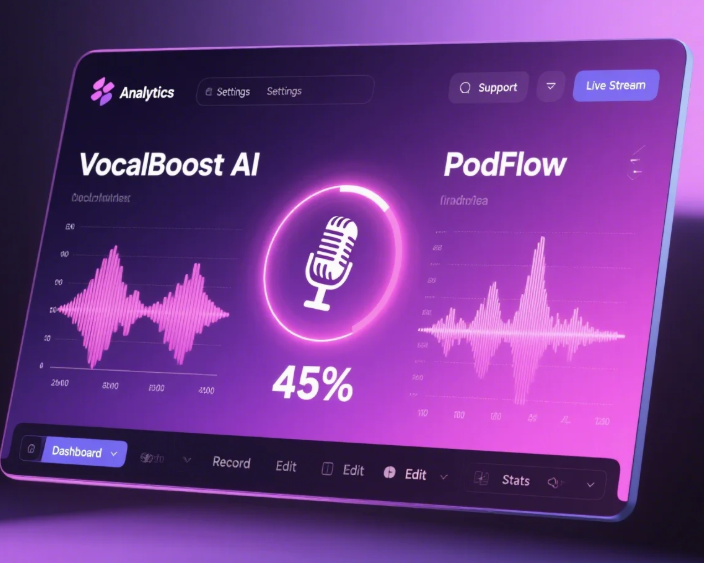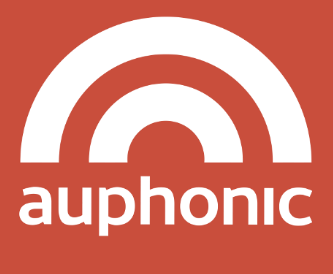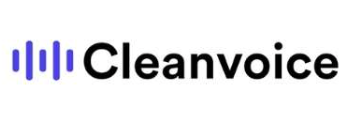Podcasting has exploded in popularity over the last decade, turning passion projects into full-blown careers. But as the industry grows, so does the pressure to produce high-quality content—fast. Enter AI tools. These advanced technologies promise to revolutionize podcasting by enhancing audio quality, automating editing, and even generating transcripts.
But here’s the controversial question: Are AI tools helping podcasters create better content, or are they killing the creative process? In this review, we’ll explore the best podcast AI tools available today, examine their features, and discuss whether they’re a blessing or a curse for creators.
Why Podcasters Need AI Tools

Let’s be honest—podcasting isn’t as easy as it looks. From recording and editing to distributing and promoting, the process can be time-consuming and downright exhausting. AI tools simplify this process by automating repetitive tasks, improving audio quality, and even suggesting content ideas.
Whether you’re a seasoned podcaster or just starting out, AI tools can help you save time, reduce stress, and focus on what matters most: connecting with your audience.
Top AI Tools for Podcasting
Here’s a rundown of the best AI tools for podcasters that can take your show to the next level:
1. Descript

Why it’s great: Descript is a game-changer for podcast editing. Its AI-powered transcription feature allows you to edit your audio by simply editing the text. It even has an Overdub feature that lets you recreate your voice for minor corrections.
Key features:
AI transcription and text-based editing
Overdub for voice corrections
Screen recording for video podcasts
Pros:
Saves hours of editing time
Easy for beginners to use
Cons:
Overdub can feel unnatural for larger edits
Subscription pricing
2. Adobe Podcast (formerly Project Shasta)

Why it’s great: Adobe Podcast is designed to make your audio sound professional, even if you recorded it in less-than-ideal conditions. Its AI-powered Enhance Speech tool removes background noise and improves vocal clarity.
Key features:
Enhance Speech for crystal-clear audio
Simple interface for quick edits
Integration with Adobe Creative Suite
Pros:
Perfect for podcasters recording on the go
Free Enhance Speech tool
Cons:
Limited functionality compared to other tools
Best suited for Adobe users
3. Auphonic

Why it’s great: Auphonic specializes in post-production audio processing. Its AI automatically balances levels, reduces noise, and optimizes audio files for distribution. It’s ideal for podcasters who want polished audio without spending hours editing.
Key features:
Automatic audio leveling and noise reduction
File optimization for various platforms
Multi-track processing
Pros:
Affordable pricing
Great for improving audio consistency
Cons:
Limited editing features
Requires manual upload of files
4. Podcastle

Why it’s great: Podcastle is an all-in-one podcasting platform that uses AI to enhance your workflow. From recording and editing to transcription and distribution, it’s a one-stop shop for podcasters.
Key features:
AI-powered editing tools
Remote recording with studio-quality audio
Automatic transcription
Pros:
Great for collaborative podcasts
User-friendly interface
Cons:
Limited advanced editing features
Subscription required for full functionality
5. Cleanvoice

Why it’s great: Cleanvoice is an AI tool designed specifically for removing filler words, stutters, and awkward pauses from your podcast recordings. It’s perfect for podcasters who want to sound polished without spending hours editing.
Key features:
Automatic removal of filler words
Batch processing for multiple episodes
Language support for non-English podcasts
Pros:
Saves time on manual editing
Improves listener experience
Cons:
Can occasionally remove intentional pauses
Limited customization options
Pros and Cons of Using AI Tools in Podcasting
While AI tools offer undeniable benefits, they’re not without their drawbacks. Let’s break it down:
Pros:
Time-saving: Automate repetitive tasks like editing and transcription.
Improved quality: Enhance audio clarity and consistency.
Accessibility: Make your podcast more accessible with automatic transcripts.
Cons:
Cost: Many AI tools come with subscription fees.
Creativity concerns: Over-reliance on AI can stifle originality.
Learning curve: Some tools require time to master.
FAQs: Common Questions About Podcast AI Tools
Q: Do I need technical skills to use these tools?
A: Most tools are designed to be user-friendly, but some advanced features may require a bit of learning.
Q: Can AI tools replace professional audio engineers?
A: Not entirely. AI tools are great for basic edits, but complex audio projects may still require human expertise.
Q: Are these tools affordable for indie podcasters?
A: Many tools offer free versions or affordable pricing tiers, making them accessible for creators on a budget.
Conclusion: Are AI Tools the Future of Podcasting?
AI tools like Descript, Adobe Podcast, Auphonic, Podcastle, and Cleanvoice are transforming podcasting. They save time, improve audio quality, and make podcasting more accessible to creators of all skill levels.
But here’s the thing: AI tools are just that—tools. They’re not a replacement for creativity, storytelling, or the human connection that makes podcasting so powerful. So, are AI tools killing creativity in podcasting? Not if you use them wisely. The key is to let AI handle the technical stuff while you focus on creating content that resonates with your audience.
See More Content about AI tools
